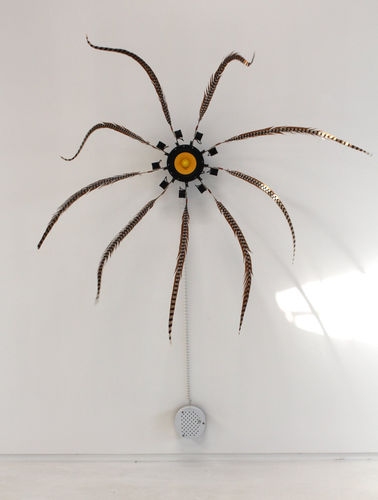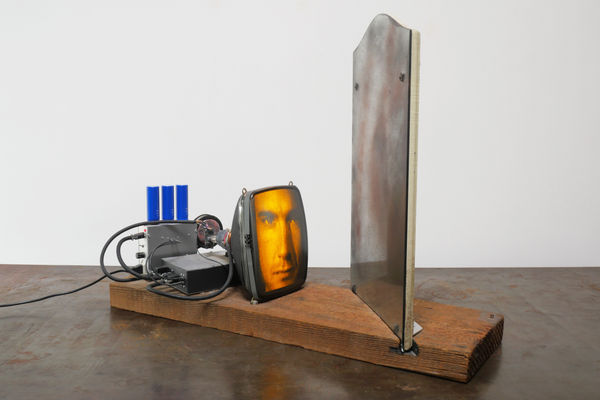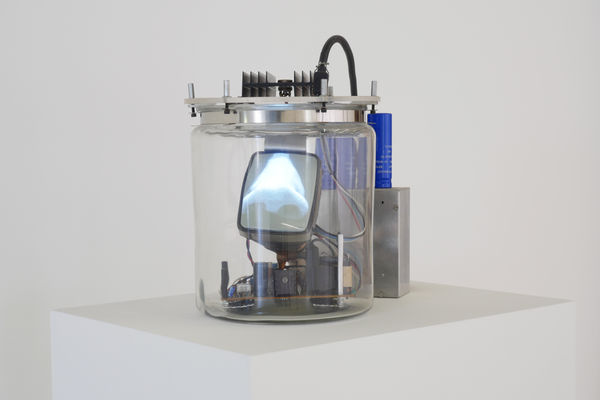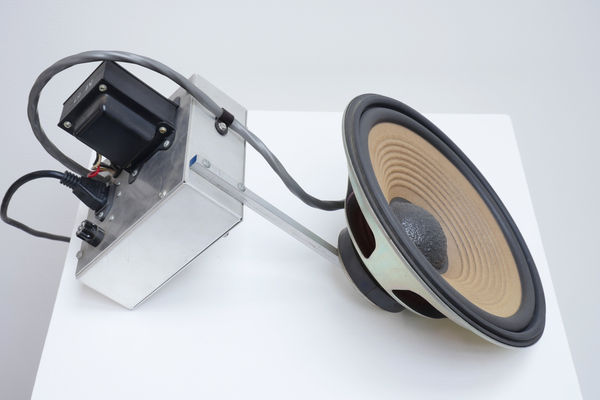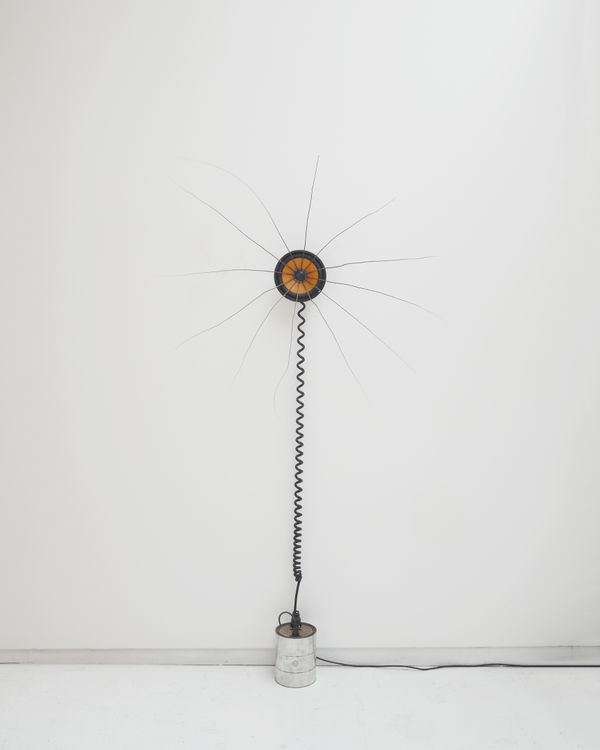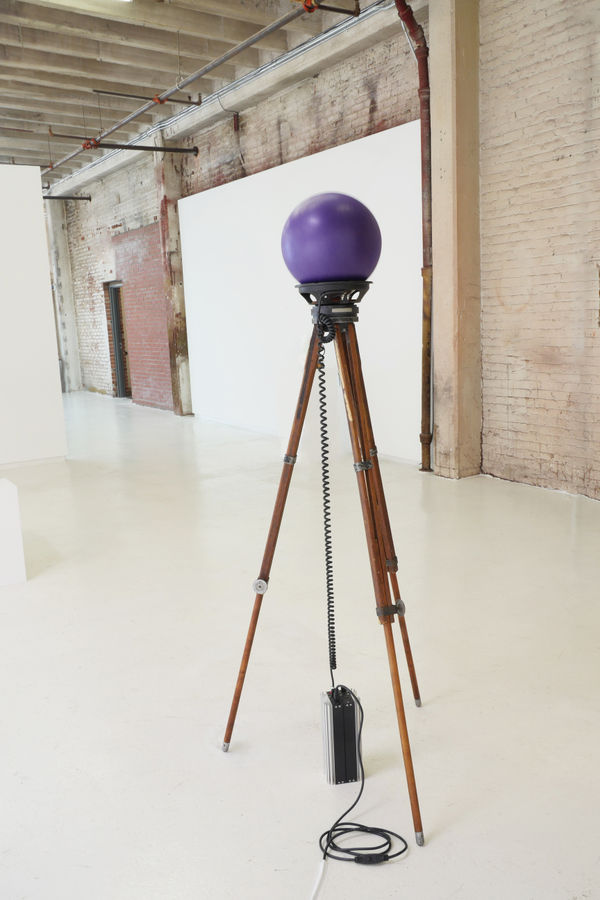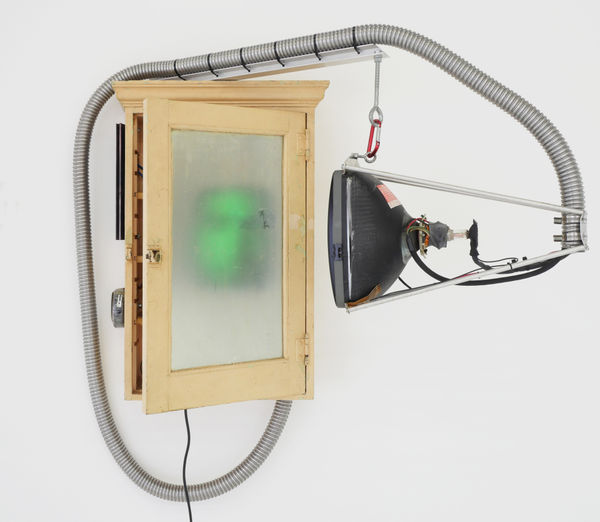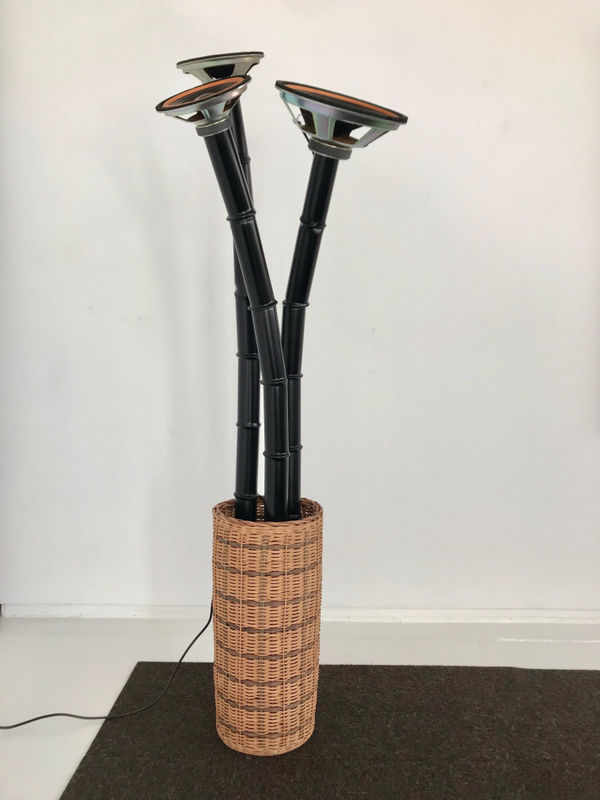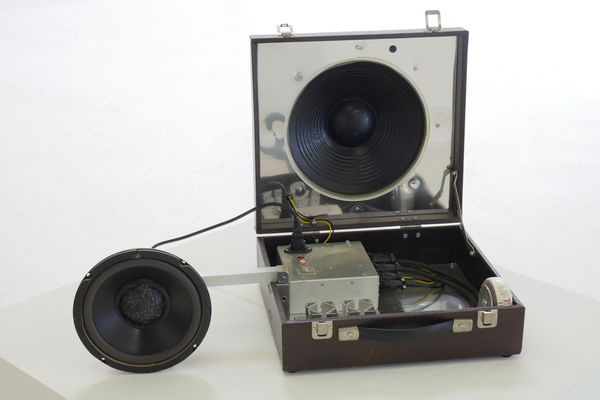Alan Rath: Machinery Is Not Unnatural
An exhibition of a dozen sculptures by the electronic art pioneer Alan Rath (1959-2020) made between 1985 and 2013, traces his interest in the relationship between humanity and technology.
In works that are formally elegant and meticulously crafted - yet playful and witty – Rath employed robotics and computer-generated video animations, which he designed, machined, and programmed himself, to refer to the human body, culture and the history of art.
Incorporating found materials such as cathode ray tubes (the archaic precursor to our LCD and OLED screens), stereo speakers, cast-off hardware, used furniture and even feathers, Rath’s work blurs the line between the living and electronic. These sculptures breathe, throb and sigh. Eyes roll and rove. Hands wave, lips purse and tongues wag. Referring to Chinese Opera, robots adorned with pheasant feathers choreograph their own movements using open-ended algorithms. In two separate works titled Vanity, the artist’s face is reflected in the mirrors of a salvaged medicine cabinets. With a wink, Rath speaks to the narcissism inherent in art making.
Daily, we see technology evolving, as the once clear distinction between the living and non-living continues to blur. And the older the works in this show become, the more prescient Alan Rath seems. “Machinery is not unnatural,” Rath once said in an interview. “It’s a reflection of the people who make it.”
Alan Rath was born in Cincinnati, Ohio in 1959 and earned a BS in Electrical Engineering from the Massachusetts Institute of Technology in 1982. While at MIT he took courses within the Architecture Machine Group – the precursor to the Media Lab – and studied with Otto Piene (a co-founder of the Zero art group) at the Center for Advanced Visual Studies. His early influences include Alexander Calder, David Smith, Robert Moog, Jimi Hendrix, and NASA. In 1983, he moved to the San Francisco Bay Area, which was his home until he died in October of 2020 at age 60, after battling multiple sclerosis for many years.
Rath’s work has been exhibited extensively internationally, including a 2019 retrospective exhibition, Virtual Unreality, organized by the Institute of Contemporary Art, San Jose. Published in conjunction with the show is a catalog raisonné with an accompanying augmented reality application that enables the viewer to animate the robotic sculptures pictured in the book. In 1991 Rath’s work was included in the Whitney Biennial. The same year, he was the subject of a solo exhibition organized by the Walker Art Center, which traveled to the Museum of Contemporary Art, Chicago; the Institute of Contemporary Art, Philadelphia; the Center for Fine Art, Miami; and The Contemporary Museum, Honolulu. Other solo museum exhibitions include Hiroshima City Museum of Contemporary Art; Contemporary Arts Museum, Houston; Aspen Art Museum; SITE Santa Fe; and Austin Museum of Art. In 1994 Rath received a John Simon Guggenheim Memorial Foundation Fellowship grant. His works are in the collections of the Cincinnati Art Museum, the Berkeley Art Museum and Pacific Film Archive, the Los Angeles County Museum of Art, the San Francisco Museum of Modern Art, the San Jose Museum of Art, the Walker Art Center, the Whitney Museum of American Art, and many others.

